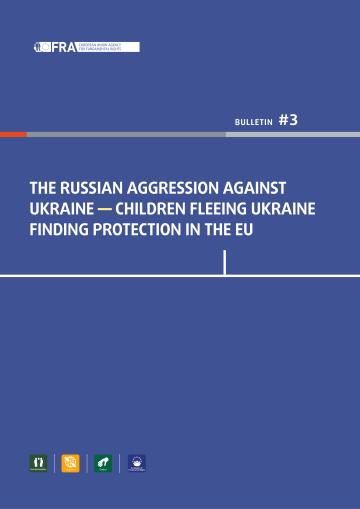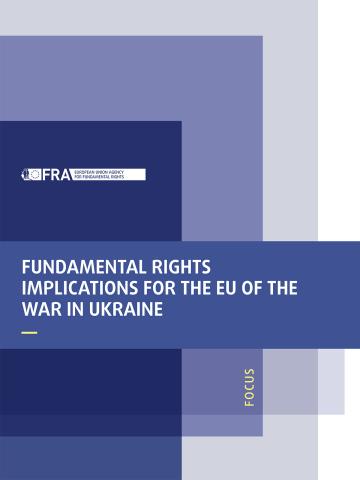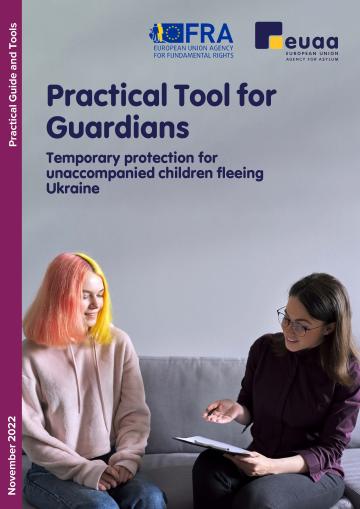
The Russian aggression against Ukraine – Children fleeing Ukraine finding protection in the EU - Bulletin 3
Search inside this publication
- Foreword
- Acronyms and abbreviations
-
Key findings
- Protecting children displaced in the EU from Ukraine: laws, policies and funding
- Establishing registration systems and existing data on children displaced in the EU
- Ensuring access to child-friendly information and child participation
- Providing healthcare and social welfare
- Ensuring access to education
- Protecting unaccompanied and separated children
- Assigning a guardian for unaccompanied children
- Ensuring the protection of the fundamental rights of children evacuated from Ukrainian institutions
- Guaranteeing protection and equal access to support for children with disabilities
- Safeguarding children at risk of becoming victims of crime, including illegal adoption
- Introduction
- 1. Legal and policy framework
- 2. Registration and existing data
- 3. Child-friendly information and child participation
- 4. Access to social rights
- 5. Protecting unaccompanied and separated children
- 6. Protecting other children in vulnerable situation
- Ways forward
- Annex 1
- Annex 2
- About this publication
We must do whatever it takes to protect children’s lives and dignity – it is their right and it is our duty. Our actions will have long-lasting effects on the lives of this young generation and future generations in the EU and beyond.
The scale of displacement resulting from the Russian aggression against Ukraine is immense; of the 4 million displaced people receiving temporary protection in the European Union, 1.3 million are children.
The full scale of the impact of Russia’s invasion on the rights and well-being of the children of Ukraine is impossible to assess at this stage. Evidence gathered by the EU Agency for Fundamental Rights (FRA), through its surveys, field work and engagement with various sources, speaks to an experience of suffering, stress, and trauma.
National and local responses to displaced Ukrainian people across the EU have been tremendous. Efforts to quickly implement the Temporary Protection Directive, to provide access to services and support, and to welcome displaced people into communities have been positive, resolute, and tireless. However, this report – the third of its kind to be produced by FRA – highlights instances where the needs of children are not being met and their rights not fully respected, protected or fulfilled.
The absence of a transparent and coordinated response to the registration of displaced children, the significant variations in approaches to receiving unaccompanied children and the lack of clarity regarding legal responsibility are just some of the challenges facing Member States in their efforts to implement the Temporary Protection Directive. The risks of reversing progress made on deinstitutionalisation and inadequacies in the provision of education and mental health services are particularly concerning.
Many of these children live in perpetual uncertainty. In their short lives, they have borne witness to a global pandemic, the violent invasion of their country, and a journey to a new country. They have been separated from family members, have had to learn a new language, understand a new culture, and make new friends, all the while not knowing how long this precarious chapter will last.
The way forward must be one anchored in existing EU and international law, which binds us all. Both the Convention on the Rights of the Child and the 1996 Hague Convention are ratified by all Member States and Ukraine. Moreover Article 24 of the EU Charter of Fundamental Rights protects the rights of the child, providing that “Children shall have the right to such protection and care as is necessary for their well-being.” Above all, we must recognise that all decisions be guided by our primordial obligation to act in the best interests of the child.
Michael O’Flaherty
Director










